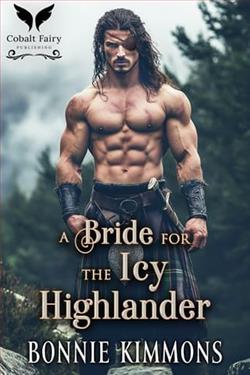Page 100 of Our Last Resort
“Don’t you want to at least try it?”
I closed my book. When I opened my mouth to speak, all that came out was a sigh.
“I’ll stay with our stuff, if you’re that worried,” she said.
How much did Annie know about our past? Not a lot. I’d checked. When she and Gabriel first broke the news of their engagement to me, over cocktails at a hotel bar, I waited untilAnnie excused herself to the bathroom, and whispered to Gabriel: “What have you told her, about…us?”
Gabriel knew what I meant.Have you told her about the fire? About Edwina? Do you intend to?
I know love makes people stupid, sometimes.
“She knows about Émile,” he’d said. “And she knows we were homeless. I think that’s enough.”
And it was. Enough for Annie to know that I’d grown up with almost nothing. Enough for her to understand, on the beach, that this phase of my life had left me with an understandable wariness about losing what I finally had.
“I know this is stupid,” I mumbled.
“What?”
As I searched for a polite way to tell her to drop it, Gabriel called from the water.
“Frida! Come on!”
For an instant, he was magnificent. Goofy, unafraid. Ecstatic. He had a wife, a job. The sea parting at his feet.
Damn it! I wanted a taste of it. Maybe our stuff would disappear. Maybe I’d lose everything. Maybe losing everything was preferable to staying safe on the sand while everyone else was having fun in the waves.
I ran. The water was cold and awesome in every sense. There was no need to swim; standing was enough of a challenge on its own. The water had no boundaries, no respect. It was ready to grab me, spin me around, spit me back out.
The nerve! The gall of nature! I loved it.
Something coiled around my ankle. I flinched. Inside my brain, a record scratched.
That feeling—what was it? A braided bracelet around my wrist, blue and brand-new, secured in a tight knot. Something to tell us apart, me and all the others.
That, I’d come to realize, was what the blue bracelets were for: to mark us. Those who wore them were over eighteen. To Émile, a girl with a blue bracelet was fair game. Ditto, the separate dorms from fourteen to twenty. They were there to keep us amongourselves: just the girls and Émile, no room for questions, secrets we were too ashamed to share. The exclusive company of other girls, our shared quarters, also set the scene for inevitable quibbles, primed us to turn against one another. At fourteen, Émile closed off our minds. At eighteen, he got started with us. At twenty, once he’d established this new normal, he released us to the company of other men.
But I was no longer in Émile’s world. I was in Spring Lake, New Jersey. When I reached down for the thing in the ocean, all I pulled out was a piece of seaweed.
Maybe there were no monsters in these waters. Maybe nothing lurked under the surface at all.
A tall wave formed on the horizon. Gabriel grabbed my hand.
“You’ve got to dive under it!”
It came, and I dove—not deep enough. For a few seconds, I was tossed around like lettuce in a salad spinner. My body whirled. I knew not to swim, because I couldn’t tell which way was up. All I could do was trust that I would float upward.
I broke through the surface. Gabriel’s gaze locked on me, concerned.
“I’m okay!” I shrieked. “I’m okay.”
Iwasokay. This was our world: it was possible toalmostdrown, toalmostget in trouble. Disaster was no longer inevitable.
I made my way to Gabriel. We waded back in a bit together. Gabriel stopped, turned to look at the beach. In my memories, the image freezes for a moment: Gabriel and me in the waves, Annie on the sand. Separate from us. In a different world.
And then, we were all moving again. Gabriel yelled something I didn’t catch in Annie’s direction. She rose from her chair and ran to join us in the surf.
34Escalante, Utah















